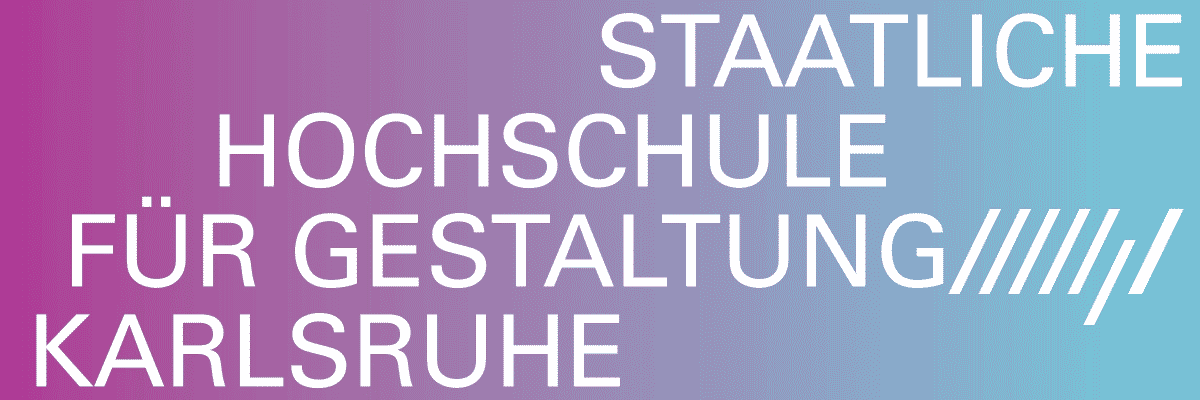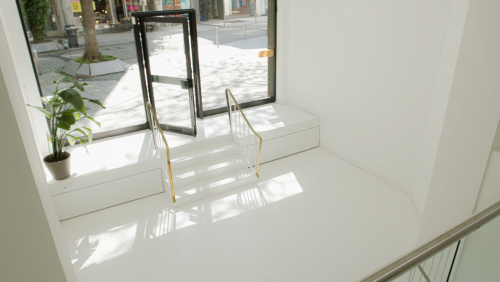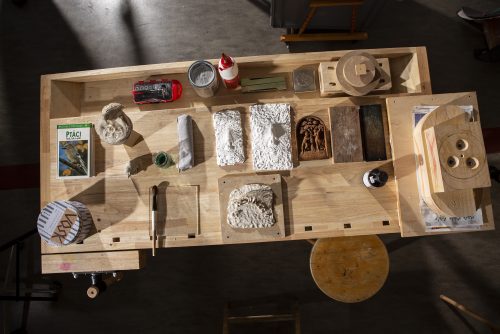
Hannah Toticki
A Million Times and More
Project Info
- 💙 Wilson Saplana Gallery
- 💚 Nanna Saplana and Christina Wilson
- 🖤 Hannah Toticki
- 💛 Anders Sune Berg
Share on

Advertisement













In Danish artist Hannah Toticki's first solo exhibition at Wilson Saplana Gallery she focuses on the concept of interconnectedness.
It is manifested in a series of ambitious works, the largest being a water-installation titled A Million Times and More consisting of a network of water pipes and kitchen sinks. The water flows rhythmically at programmed intervals, as if the taps were being opened and closed by invisible hands. The installation thus becomes both a sound work as well as a physical sculpture.
With the title of the installation, which has also named the exhibition, Toticki refers to the repetitive reproductive work, to cooking, the endless dishwashing, and to all the carework that connects. We are also connected by water. Millions of drops of water are absorbed into and expelled from our bodies, and the daily routines in our homes are made possible by our infrastructure of this essential water. This water we take for granted in our daily lives, but which is increasingly a scarce resource on a global scale. In Toticki's exhibition, the water pipes have literally stepped out of the wall, making visible the systems and our interconnectedness.
Hannah Toticki also presents a series of smaller works that provide perspective on everyday routines and society's constant focus on optimization and efficiency. Issues that weigh on us all and which, in Toticki's sculptures, become poetic statements about the constant reproductive house work. Across these works, hands stand as the exhibition's most important actor: playfully wrapping fingers around colorful sponges, dishcloths, and sharp kitchen utensils. The hands are intertwined with the tools, are tools themselves, and are closely connected with the materials and the work they perform in the home.
Toticki’s works can arguably be seen as a counter-image to the extraordinary and/or edited, which fills most of the media images and the platforms of social media. Here, the concrete, physical, and intimate everyday life, which actually takes up most of our time, but which often becomes a smaller and somewhat overlooked part of the public conversation. Everyday life, and ultimately life itself, instead becomes a task that simply needs to be managed.
Hannah Toticki has a keen eye for the challenges of everyday life, both within the home and in our work lives, as well as how individual actions are influenced by larger societal structures. Alongside Toticki’s social criticism lies empathy, humor, and poetry. She has the ability to reflect us both critically and caringly, insisting on placing the individual within a community.
In the magazine Art in America, Senior editor Emily Watlington describes Hannah Toticki's works as "life hacks":
“8 hours of work, 8 hours of rest, 8 hours of leisure” is a slogan coined in the 19th century by a man who didn’t have to feed himself or otherwise do much “adulting.” He had a wife to do all the housework for him. Times have changed, but the eight-hour workday model persists. [...] To capture this familiar feeling—of needing to do several things at once, of there not being enough hours in the day, of commuting in a state of zombielike exhaustion—the Danish artist Hannah Toticki has created a series of [works ] that double as life hacks”. – Emily Watlington, 2023
For this exhibition in the gallery, Emily Watlington has contributed a text about Hannah Toticki's practice. Download this below.
Hannah Toticki (b. 1984) graduated from the Royal Danish Academy of Fine Arts in 2016. Toticki has exhibited both nationally at Copenhagen Contemporary, O-Overgaden, Brandts Kunstmuseum, HEART Herning Museum of Contemporary Art, and internationally with solo exhibitions at EMST National Museum of Contemporary Art Athens, MOCAD Museum of Contemporary Art Detroit, and Galleri Wedding, Berlin. She has performed at venues such as KW Institute for Contemporary Art, Berlin, the National Gallery in Prague, the Glyptoteket, and Roskilde Festival. She has received the Wessel-Bagge Scholarship, the Astrid Noack Scholarship, the StartPoint Prize at the National Gallery in Prague, and the Talent Prize from the Carl Nielsen and Anne Marie Carl-Nielsen Scholarship. In 2022, she received the three-year working grant from the Danish Arts Foundation.




